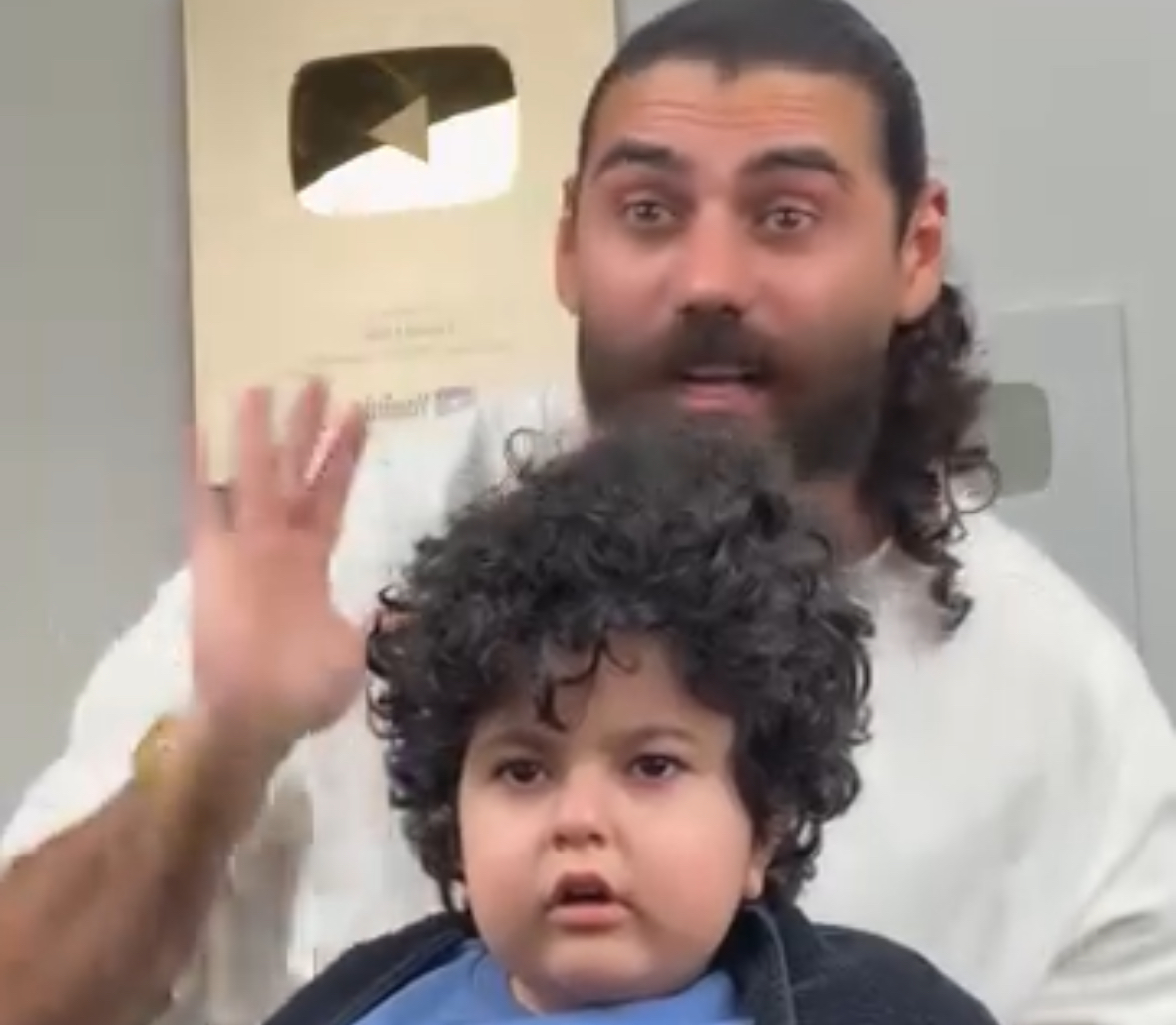For as long as anyone could remember, Liam Carter had worn his hair long.
Not just “a little shaggy” long — really long. Thick, golden-brown locks tumbled past his shoulders, sometimes tied in a loose ponytail, sometimes left free to blow in the wind. At seven years old, Liam looked more like a storybook prince than a second grader. It had become his signature look, and he liked it that way.
So when people—neighbors, teachers, even family—asked when he was finally going to get it cut, Liam always answered the same way:
“Never.”
To him, his hair wasn’t just hair. It was comfort. It was identity. It made him feel like himself.
His mom, Emily, didn’t mind. “It’s his hair,” she’d say with a shrug. “When he’s ready, he’ll know.”
Still, there were moments. Like when it tangled so badly after a windy day at the park that it took half an hour to brush out the knots. Or when a classmate mistook him for a girl and teased him during recess. Or when he’d get hot and grumpy in the summer, brushing sweaty strands off his neck every five seconds.
But even then, he’d insist: “I’m not cutting it.”
That is, until one day, everything changed.
It started at the school assembly.
A group from the local children’s hospital had come to talk about their annual fundraising drive. They brought along posters of kids going through chemotherapy — some with bright smiles and bald heads. One picture showed a little boy named Aiden holding a handmade sign: “Thank you for donating your hair!”
The room fell quiet.
Liam stared at the image. Aiden couldn’t have been older than six. His eyes were kind and big, like Liam’s, but he had no hair at all. Not because he chose it — but because he didn’t have a choice.
That night, Liam was quieter than usual. At dinner, he picked at his mashed potatoes and barely spoke. After brushing his teeth, he came downstairs holding a printed flyer from the hospital visit.
He looked at his mom. “What does it mean to donate your hair?”
Emily raised an eyebrow. “It means people grow out their hair and then cut it to make wigs for kids who lost theirs from being sick.”
Liam looked down at the floor.
“Could I do that?”
She blinked. “You mean… cut your hair?”
He nodded, slowly. “For Aiden. Or someone like him.”
Emily’s heart swelled with pride—and a little surprise. “If you’re sure. It’s a big step.”
“I know,” he said. “But I think I want to.”
The appointment was booked for that weekend.
As the day approached, Liam’s nerves crept in. He spent extra time brushing his hair, running his fingers through it in the mirror. “What if I don’t look like me anymore?” he asked his dad the night before.
His dad smiled. “Hair doesn’t make you who you are. You do.”
On Saturday morning, the whole family went to the salon. His older sister, Grace, brought a camera. His little brother, Max, offered to hold his hand.
The stylist, a cheerful woman named Denise, knelt beside Liam’s chair and spoke gently.
“You ready, superstar?”
He took a deep breath. “Ready.”
Denise carefully measured and sectioned his hair into four ponytails. “We’re going to save these for the wig donation. Want to hold one when it’s done?”
He nodded.
The first snip was the loudest thing in the room. It echoed. Everyone watched as the first long tail of hair fell into Denise’s hand.
By the time she’d finished the fourth, Liam was gripping them all like little trophies. His head felt lighter already.
Then came the shaping. Denise trimmed, layered, and styled until Liam’s reflection revealed someone new. The long hair was gone, replaced with a soft, tousled cut that framed his face.
He blinked at the mirror.
“I look… different,” he whispered.
“You look awesome!” Max cheered.
Grace snapped a photo.
But the best moment came when Liam smiled. A full, confident, proud smile.
At school on Monday, his friends couldn’t believe it.
“Whoa, Liam!”
“Did your mom make you cut it?”
“No,” Liam said proudly. “I donated it. For kids who can’t grow their own.”
There was a pause. Then, one classmate said, “That’s actually… kinda cool.”
By lunchtime, even the kids who used to tease him were asking questions like, “Did it hurt?” and “Can anyone do it?”
Liam felt tall that day—not because of his hair, but because of his heart.
Later that week, a letter arrived from the children’s hospital. It included a photo of a wig made from donor hair, and a handwritten note from Aiden’s nurse:
“Dear Liam,
Thank you for your generous gift. Your hair will help make another child feel strong and confident again. You are a true hero.”
Liam read it three times.
Then he placed the letter on his wall, right next to the photo Grace had taken of him after the haircut.
It was a new chapter. A bold one. And he had written it himself—with courage and kindness.
